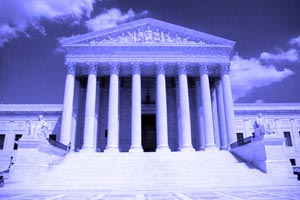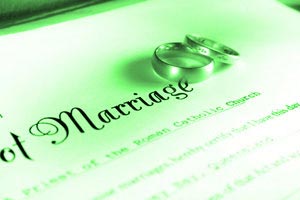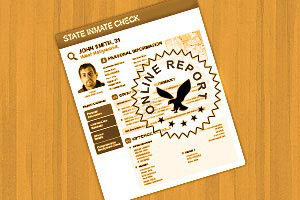North Dakota Public Records
The North Dakota State Records website provides every person with the right to gather, obtain, and examine public records. This ensures North Dakotans have access to this information in accordance with the North Dakota Open Records Statute. This act states that all government information and records are available to the public.
This website ensures that all members of the general public have the right to access North Dakota state public records without requiring a party to specify a reason for needing the information or revealing any personal information, providing that said record is not confidential by law or court order.
North Dakota State Records contains criminal records, court records, vital records, and over 7 million transparent public records.
Are North Dakota Records Public?
Yes. Unless exempted by law, all government entity records are public and open to access and copying during reasonable office hours. The North Dakota Open Records Statute (Sunshine Laws) determines public records as government information created or maintained by any agency. These records include any information created during the performance of official business by a government agency, its agents, and contractors.
What is Considered Public Information in North Dakota?
North Dakota public records include the following:
- Arrest records and mugshots
- Marriage Records
- Divorce records
- Inmate records
- Court records
- Arrest records
- Bankruptcy records
- Sex offender information
The North Dakota Open Records Statute specifically notes that a record can be public regardless of form or method of creation. This means public records can be created and stored as anything from written or typed documents to audio files, videos, and pictures. Requesters can obtain records in different forms, such as emails, computer files, discs, typed documents, and other mediums. They simply have to contact the designated custodian of such public records to make a public records act request. Moreso, some government agencies have expansive online tools where a record seeker can conduct a free public data search, while others offer such at a minimal fee.
How Do I Find Public Records in North Dakota?
According to the North Dakota Public Record Statute, anyone can request access to public records as long as they contact the correct entity. The requester does not have to reside in North Dakota to make record requests of government entities in the state. Requesters may use the following simple steps to make public records requests:
- Determine the type of record and locate its custodian
The first step would be to identify the record to be requested and locate the agency that is in custody of the record. Requesters will be required to provide accurate details to the custodian to facilitate the quick and easy location of the record. For instance, requesters will find Inmate records through the North Dakota Department of corrections or local law enforcement officials. Vital records are usually found at the North Dakota Department of Health and Human Services Vital Records Office. Depending on the type of record, this might be a case name or docket number for a court case or a name and date of birth for a sex offender record. Incorrect or vague information may cause a record request to be delayed or ultimately denied. - Contact the government entity/record custodian.
The next step is to contact the correct custodian. For example, the district court clerk of courts is in charge of criminal and civil court records. Marriage records can be obtained from the county clerk in the county where the marriage ceremony was held. Sometimes a requester may contact a custodian and receive a yes or no answer to the question of whether a record exists. Calling the custodian ahead of this allows a requester to be sure the record is available before making the request. Most government agencies usually have their contact details on their website. - Contact the record custodian and make an official request
After determining the record and finding the correct government entity or custodian, the request may be made. The request can be made in person, by mail, fax, or by telephone. North Dakota’s Open Record Statute does not require a public record request to be written, but the requester must accurately describe an existing record. If the request is vague, then the government agency may request a clear written request and delay until it gets one. The government agency charges for copies of the record and may also charge for any time taken to locate and redact the record if necessary.
Some public records may also be accessible from third-party websites. These websites are not limited by geographic location and come with expansive search tools. Record seekers can use these sites to start a search for a specific record or multiple records. To use a search engine on a third-party or government website, interested parties usually must provide:
- The name of the person involved in the record, unless said person is a juvenile
- The location or assumed location of the document or person involved
Third-party sites are independent of government sources and are not sponsored by these government agencies. Because of this, record availability on third-party websites may vary.
How to Use Third-Party Sites to Find Public Records North Dakota
City Records
Public city records may also be accessible from third-party websites. These non-government platforms come with intuitive tools that allow for expansive searches. Record seekers may either opt to use these tools to search for a specific record or multiple records. However, users will need to provide enough information to assist with the search such as:
- The name of the subject involved in the record (subject must be older than 18 or not juvenile)
- The address of the requestor
- A case number or file number (if known)
- The location of the document or person involved
- The last known or current address of the registrant
Third-party sites are not sponsored by government agencies. Because of this, record availability and results may vary.
Public Records
Public records can also be accessed from third-party websites. These third-party public records aggregate websites offer search services that are non-geographically limited, making the search result expansive and typically straightforward. However, users will need to provide enough information to assist with the search, such as:
- The name of the subject involved in the record as long as the subject is not a juvenile
- The last known or location of the record subject
Third-party public records search websites are not government-sponsored services. Therefore, the availability and accuracy of results can vary.
How Do I Lookup Public Records for Free in North Dakota?
Whether or not a record in North Dakota can be looked up for free will usually depend on two factors. These are the type of record in question and the government agency in charge of the record. A good way to view North Dakota court records is to look them up online using the North Dakota Courts Records Inquiry system (NDCRI).
Many of the district court clerk’s offices also have public access terminals where court records can be accessed for free. North Dakota’s Department of Corrections and Rehabilitation (DOCR) maintains a database of inmates incarcerated in the state that can be assessed for free through the Resident’s lookup. The North Dakota Sex Offender Registry also possesses a search tool that allows users to look up sex offender records and information for free. Submitting requests for public records at the custodian’s office and checking for records online are valid ways to look up public records for free in North Dakota.
North Dakota public records were created as far back as the year 1876 and usually include information from all 53 counties and census areas, thereby ensuring North Dakota abides by the commitment of the United States of America to remain a fair and just society for all. Further, as digitization has become the standard for public records over the last 30 years, these records are increasingly available online through third-party and governmental websites.




